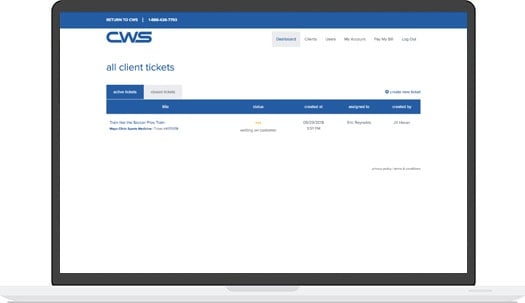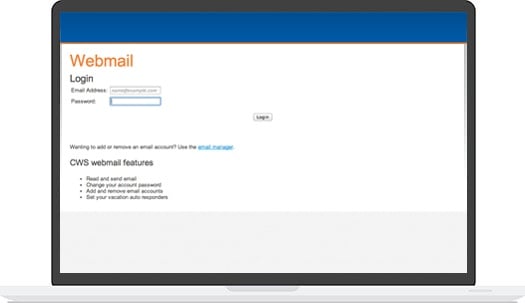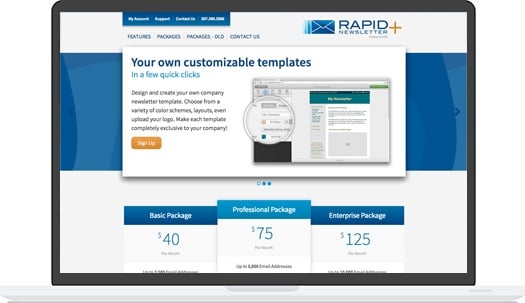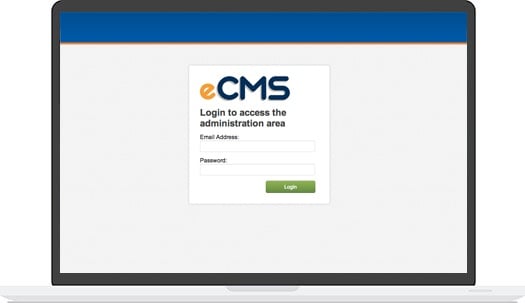Not all web browsers are created equally and the competition has never been this fierce. The truth is that a majority of web surfers only know of one browser; Internet Explorer. When dealing with the internet, everyone has different particulars for what they are looking for in their experience. The three most desired features users look for are; speed, privacy, and functionality.
The three largest browser giants are Chrome, Firefox, and Internet Explorer. While most of these applications are versatile and user friendly, each have their own pitfalls (some bigger than others).
We will be highlighting these browser's advantages and drawbacks so you, as a user, can identify which is the best one for you.
 Chrome (CWS Browser of Choice)
Chrome (CWS Browser of Choice)
Pros:
- Sandboxed design keeps away malware issues
- Customizable themes, web apps, and extensions
- Web design friendly
- Simple user functionality
Cons:
- Some features are buried within Chrome’s control panel
Chrome is the most frequently used browser at CWS. A brainchild of Google, Chrome is the most well rounded browser available on the internet today. Keeping true with Google’s minimalistic style, navigation is simple and easy to adapt to. Website loading times, even heavy image websites, load in only a few seconds.
Chrome takes performance and security to the next level. This is why it’s a CWS’ browser of choice. While most tabs in a browser run as one process, Chrome runs each tab as a separate process, which means if one tab freezes, you don’t have to end your entire browsing session.
Google, being the internet giant that it is, also ensures that all new and current web designs are usable and viewable perfectly within its browser.
Chrome is also one of the most secure browser on the internet, because it is sandboxed. That means plugins and web apps can only access items within your browser and not your entire computer, thus preventing malware from plugin exploits!
Additionally, you can completely customize your browser with themes, web apps, and extensions. If Chrome has released an update, your browser will automatically update when your version is out of date
While most browsers have issues, there are few we can find within Chrome.
Firefox
Pros:
- Simple and sleek navigation
- Thousands of extensions
- Web design friendly
Cons:
- Slow loading times
- Extensions use a lot of memory
Mozilla’s Firefox was originally released in 2002 and quickly became the largest competitor of Internet Explorer. Throughout the years Firefox has refined many of the issues that users found annoying. The most noticeable change is that the toolbar has been sized down to look like a Windows application (such as Microsoft Word). You can easily change each visual aspect of Firefox and download extensions to personalize your web browsing.
Like Chrome, updates happen automatically once your version is out of date. Current and new means of web designs are upgraded within all updates to ensure every website is workable within its browser
Although there are a multitude of great features, the disadvantages are almost immediately noticeable. Firefox uses a lot of memory and load times can be very slow. The more extensions you add, the slower your load time can be.
Internet Explorer
Pros:
- Updated graphic capabilities
- Faster loading times
- Low memory use
Cons:
- Not compatible with all websites (this is a biggie!)
- Later versions tend to cause a lot of issues for users and web designers alike
- Can be a security risk (another biggie!)
- May lose website functionality with certain types of website design
- Does not update automatically
One of the original browsers, Internet Explorer, was released in 1995. Controlling the web browser market since the beginning, it has since slipped to a mere 11.8% of users in August.
It has become common knowledge that Internet Explorer is one of the least safe and compatible browsers available. Although they recently updated their graphic capabilities, load times, and low memory issues, it hasn't transferred into a noticeable difference. On top of that, there are still many that use later versions that are still not up to standards for certain types of web design.
Internet Explorer creates hurdles for web developers. Responsive web design has become a necessity for almost all websites and that is an issue with Internet Explorer. While it is slightly compatible, at certain dimensions websites can become disfigured or even disappear. This is a problem in IE9 and IE8 is even less compatible. Some web designers do not support this format because of these issues.
Finally, Internet Explorer is one of the last browsers that doesn't update automatically. That means you can be using an out of date browser that may not handle new websites being developed today.
Conclusion
While there are a variety of choices for your personal browser, a few stand out above the rest. Chrome and Firefox continually prove themselves to be the strongest, safest and most current browsers available. When choosing your own browser, CWS recommends that you take things like safety and compatibility into account.

.jpg?t=1533315998368) How-To Articles
How-To Articles Support Portal
Support Portal Webmail
Webmail Rapid Newsletter+
Rapid Newsletter+ eCMS
eCMS




 Our content team is made up of thought leaders, strategists, and content creators who have more than 70 years of combined experience. With a wide variety of backgrounds as entrepreneurs, marketing gurus, healthcare associates, as well as plenty of experience in other industries, we help grow businesses with our relevant, trusted, and helpful resources.
Our content team is made up of thought leaders, strategists, and content creators who have more than 70 years of combined experience. With a wide variety of backgrounds as entrepreneurs, marketing gurus, healthcare associates, as well as plenty of experience in other industries, we help grow businesses with our relevant, trusted, and helpful resources.
